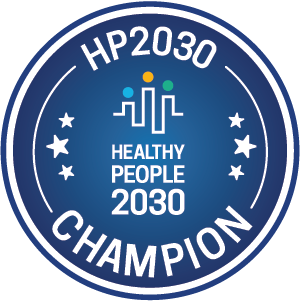Promising Practices
The Promising Practices database informs professionals and community members about documented approaches to improving community health and quality of life.
The ultimate goal is to support the systematic adoption, implementation, and evaluation of successful programs, practices, and policy changes. The database provides carefully reviewed, documented, and ranked practices that range from good ideas to evidence-based practices.
Learn more about the ranking methodology.
Filed under Evidence-Based Practice, Community / Social Environment, Children
Goal: The goals of DTBY are to improve parents' self-esteem, enhance decision-making skills, increase communication between parents and children, teach effective stress management, and strengthen peer support.
Impact: Several studies have demonstrated increases in parental self-efficacy and self-esteem among DTBY parents. Also, the use of harsh punishment decreased and effective discipline and limit-setting increased. Children involved in DTBY programming had greater average increases in developmental level.
Filed under Effective Practice, Health / Older Adults, Older Adults
Goal: The goal of this toolkit is increase health care provider knowledge and confidence in assessing the driving skills of patients with dementia.
Filed under Good Idea, Health / Physical Activity, Children, Families
Goal: The main purpose of the Eat Well! El Paso program is to improve the local food environment by expanding healthy food options for children and their families, as well as to increase awareness and knowledge of the positive effects that healthy food choices can have on our health and our community.
Impact: Many locally-owned restaurants in El Paso have worked with the Eat Well! El Paso program to improve the healthy meal choices on their menus, helping to create a healthier food environment for the community.
Filed under Good Idea, Environmental Health / Built Environment, Children, Teens, Men, Racial/Ethnic Minorities
Goal: Making Connections for Mental Health and Wellbeing Among Men and Boys is a national initiative to transform community conditions that influence mental wellbeing. The Prevention Institute works with 13 communities across the U.S. to shift policies, practices, and norms to create greater opportunities for health and resilience, with particular focus on veterans and men and boys of color.
Filed under Good Idea, Community / Public Safety, Families, Racial/Ethnic Minorities, Rural
Goal: In an effort to prepare and engage community residents to take a more participatory role in their communities, Monterey County Health Department (MCHD) developed and has offered since 2014 a leadership and civic engagement program (enLACE) that addresses the social determinants of health, community engagement and their relationship to the health of the community.
Goal: In this particular instance, the goal of the Undoing Racism Workshops was to enhance the capacity of the Michigan Department of Community Health's Bureau of Family, Maternal & Child Health to reduce racial disparities in infant mortality.
Impact: The Undoing Racism workshop helped to increase competency in the following topics:
-Racial prejudice and racism
-Racial privilege and power
-Institutional, cultural, and internalized racism
-Instiutional norms and practices
-Racial health disparities
-Social determinants of racial health disparities
Filed under Effective Practice, Environmental Health / Energy & Sustainability, Urban
Goal: The goal of these projects was to find ways to maximize energy conservation and efficiency through measures with a quick payback period.
Filed under Evidence-Based Practice, Health / Women's Health, Women, Racial/Ethnic Minorities
Goal: The goal of the FoCaS Project is to improve breast and cervical cancer screening participation among low-income women.
Filed under Effective Practice, Community / Crime & Crime Prevention, Children, Teens, Urban
Goal: The goal of this program is to educate students about the dangers of gangs, discourage gang membership, educate parents about the signs of gang involvement, and provide families with resources to reduce gang activities in their homes and neighborhoods.
Filed under Evidence-Based Practice, Community / Public Safety, Teens
Goal: The goal of TADRA is to reduce fatal crashes among teenage drivers.
Impact: After the implementation of TADRA, speed-related fatal crashes were cut by 42%, and alcohol-related fatal crashes decreased nearly 60%.

